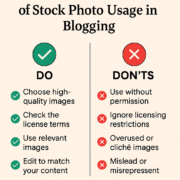Local SEO: How to Dominate Your Niche and Attract Local Customers
In the competitive landscape of online marketing, achieving dominance in your niche and attracting local customers can be likened to navigating through a maze. Just as a skilled navigator relies on a map and compass to find their way, businesses can rely on the power of local SEO to navigate the digital landscape. This article serves as a comprehensive guide, providing informative and data-driven strategies to help businesses conquer their niche and draw the attention of local customers.
Keyword Research
In order to effectively target local customers and dominate your niche in local SEO, conducting thorough keyword research is essential. Keyword research involves analyzing competitor websites, identifying long tail keywords, understanding local search trends, and optimizing for voice search and mobile devices.
Competitor analysis is a crucial part of keyword research. By analyzing the keywords your competitors are ranking for, you can uncover valuable insights and identify opportunities to outperform them. This analysis helps you understand what keywords are relevant to your local audience and which ones are already saturated.
Long tail keywords are longer, more specific keyword phrases that have lower search volume but higher conversion rates. By targeting these keywords, you can attract highly targeted local customers who are more likely to convert.
Local search trends change over time, and it’s important to stay updated on what your local audience is searching for. This information allows you to optimize your content and website to align with their preferences and needs.
Voice search optimization is becoming increasingly important as more people use voice assistants like Siri and Alexa. Optimizing your website for voice search requires understanding the natural language queries people use and incorporating them into your content.
Lastly, mobile optimization is crucial for local SEO success. With the majority of searches now happening on mobile devices, it’s essential to ensure that your website is mobile-friendly, loads quickly, and provides a seamless user experience.
Optimize Your Website
To increase the visibility and online presence of your business, it is crucial to ensure that your website is optimized to rank higher in search engine results. A well-optimized website can attract more visitors and potential customers. There are several key factors to consider when optimizing your website.
Firstly, website design plays a significant role in user experience. It should be visually appealing, easy to navigate, and mobile-friendly.
Fourthly, website security is paramount. Obtaining an SSL certificate ensures that users’ data is encrypted, providing a secure browsing experience. Lastly, website content should be high-quality, engaging, and easily readable. Incorporating relevant keywords, headings, and meta tags can help boost search engine rankings. Overall, optimizing your website for design, mobile optimization, speed, navigation, security, and content readability will greatly improve its visibility and online presence.
Google My Business (GMB) Optimization
Google My Business (GMB) optimization increases the chances of your business appearing in local search results and provides essential information to potential customers. To start, ensure that your GMB listing is complete and accurate. This includes verifying your business information, such as address and phone number, through the GMB verification process. Adding high-quality and relevant photos to your GMB profile can also enhance your online presence and attract more customers. Additionally, regularly publishing GMB posts can help promote your products or services, share updates, and engage with your audience. Encouraging customers to leave reviews on your GMB listing can also boost your visibility and credibility. By optimizing your GMB profile with accurate information, attractive visuals, engaging posts, and positive reviews, you can maximize your chances of attracting local customers and dominating your niche.
Local Link Building
Local link building is an effective strategy for increasing online visibility and improving search engine rankings. To successfully implement local link building, businesses should employ various outreach strategies and link building tactics. One important aspect is getting listed on local directory listings, such as Yelp or Yellow Pages, as these platforms provide valuable backlinks and increase local visibility. Additionally, community engagement plays a crucial role in building local links. By actively participating in local events, sponsoring community initiatives, and engaging with local organizations, businesses can establish themselves as trusted and authoritative sources, leading to more backlinks from local websites. Furthermore, collaborating with local influencers can also enhance link building efforts. Partnering with influencers who have a strong local following can help businesses gain exposure and attract quality backlinks from relevant and reputable sources. By implementing these local link building strategies, businesses can improve their online presence and attract more local customers.
Content Creation
Creating high-quality and relevant content is essential in establishing a strong online presence and attracting a targeted audience. In the realm of local SEO, content creation plays a pivotal role in dominating your niche and attracting local customers. Visual storytelling is a powerful tool that allows businesses to convey their brand message and connect with their audience on a deeper level. Utilizing influencer collaborations can help amplify your content reach and tap into new local markets. Video marketing is another effective strategy that can captivate your audience and improve your search engine rankings. Additionally, incorporating local events into your content strategy can help foster a sense of community and build trust with your local customers. Lastly, customer testimonials provide social proof and can significantly influence potential customers’ decision-making process. By incorporating these content creation strategies, businesses can enhance their online visibility and attract local customers.
On-Page SEO
On-page SEO encompasses a range of techniques and strategies that aim to optimize various elements of a website to improve its visibility and rankings on search engine result pages. One important aspect of on-page SEO is mobile optimization. With the increasing use of smartphones, it is crucial for websites to be mobile-friendly to provide a seamless user experience. Another factor to consider is website speed. Slow loading times can negatively impact user experience and search engine rankings. Optimizing meta tags, such as title tags and meta descriptions, helps search engines understand the content of your website. URL structure plays a role in improving the user experience and making it easier for search engines to crawl and index your site. Lastly, internal linking helps search engines discover and navigate through your website, improving its overall visibility and SEO performance.
Local Citations
Local citations play a crucial role in local search engine optimization (SEO) strategies. A citation is any mention of your business’s name, address, and phone number (NAP) on the web. Citation building involves creating and managing these mentions across various online platforms, such as local directory listings, review websites, and social media profiles.
Local directory listings are particularly important for citation building as they provide a valuable source of NAP consistency. Ensuring that your business’s name, address, and phone number are consistent across all online platforms helps search engines understand and verify your business’s information, which can positively impact your local search rankings.
Furthermore, local citations also contribute to online reputation management. Positive reviews and accurate business information displayed across different platforms can build trust and credibility among potential customers, leading to increased visibility and customer conversions.
Schema Markup
Schema markup is a structured data vocabulary that helps search engines understand the content and context of web pages, improving their visibility and relevance in search results. It provides additional information about the website’s content, making it easier for search engines to index and display the relevant information to users. When it comes to local SEO, schema markup can play a crucial role in improving your website’s visibility and attracting local customers. By using schema markup, you can provide search engines with important information about your business, such as your address, phone number, business hours, and customer reviews. This can greatly enhance your online reputation and make it easier for potential customers to find and contact you. Additionally, schema markup can also help with mobile optimization and voice search optimization, ensuring that your website is accessible and user-friendly across different devices and platforms. To dominate your niche and attract local customers, it’s important to incorporate schema markup into your local SEO strategy, along with other tactics like competitive analysis and listing your business in local directories.
Social Media Presence
A strong social media presence is essential for businesses looking to engage with their target audience and build brand awareness. Social media engagement allows businesses to connect with their customers on a more personal level, creating a sense of trust and loyalty. One effective way to boost engagement is through influencer collaborations. By partnering with influencers who have a large following and align with their brand values, businesses can reach a wider audience and increase their online reputation. Another way to build a strong social media presence is by actively participating in local community events. This not only helps businesses establish themselves as active members of the community but also provides opportunities for customer testimonials. By encouraging customers to share their positive experiences, businesses can strengthen their online reputation and attract more local customers.
Local Reviews
Positive reviews from satisfied customers can greatly impact a business’s online reputation and attract potential customers. Reputation management is crucial for local businesses in today’s digital age. Online testimonials and reviews play a significant role in shaping public perception and influencing purchase decisions. Local business directories, such as Google My Business and Yelp, have become popular platforms for customers to share their experiences. To generate more positive reviews, businesses can actively encourage customers to leave feedback by providing excellent service and offering incentives for reviews. Responding to customer feedback is equally important. Engaging with customers, whether they have left a positive or negative review, shows that the business values their opinions and is committed to addressing any concerns. By effectively managing their online reputation and leveraging positive reviews, local businesses can enhance their visibility and attract more customers.
Monitoring and Analytics
One crucial aspect of reputation management for businesses is monitoring and analyzing online reviews and testimonials. This process provides valuable insights into customer satisfaction, brand perception, and areas for improvement. Additionally, monitoring and analyzing online reviews and testimonials can help businesses identify trends and patterns in customer feedback, enabling them to make data-driven decisions to enhance their products and services. Conversion tracking is another important aspect of reputation management, as it allows businesses to measure the effectiveness of their marketing efforts and identify areas of improvement to increase customer conversions. Competitor analysis is also crucial in reputation management, as it helps businesses understand their competition and identify strategies to differentiate themselves. Furthermore, businesses should prioritize mobile optimization and website speed optimization to enhance the user experience and improve search engine rankings. Lastly, staying updated on local search trends is essential for businesses to adapt their strategies and attract local customers effectively.
Local SEO Advertising
Local SEO advertising plays a crucial role in attracting local customers and dominating your niche. Implementing effective local SEO strategies, tips, techniques, and best practices can significantly enhance your chances of success. To start, optimizing your website with local keywords, such as location-specific terms and phrases, can help search engines understand the relevance of your content to local users. Additionally, creating and optimizing your Google My Business profile is essential for appearing in local search results and increasing your visibility.
Another effective local SEO advertising technique is to leverage online directories and review platforms. Listing your business on popular directories like Yelp, TripAdvisor, and Yellow Pages not only improves your online presence but also increases your chances of being discovered by local customers. Encouraging positive customer reviews on these platforms can further enhance your local SEO success.
Furthermore, utilizing social media platforms like Facebook, Instagram, and Twitter can help you reach and engage with local customers. Sharing localized content, responding to customer inquiries promptly, and running targeted ads can all contribute to your local SEO advertising efforts.
Networking and Partnerships
Networking and partnerships are essential components of any successful business, as they provide opportunities for collaboration, knowledge sharing, and access to a wider customer base. In the context of local SEO, networking and partnerships can play a crucial role in dominating your niche and attracting local customers. Partnership opportunities can arise through local networking events, where you can connect with other businesses in your area and explore potential collaborations. Collaborative marketing initiatives, such as joint promotions and referral programs, can help you expand your reach and attract more local customers. By partnering with complementary businesses in your niche, you can leverage each other’s strengths and resources to create mutually beneficial marketing campaigns. These initiatives not only enhance your visibility in the local market but also build trust and credibility among your target audience.
In the world of local SEO, partnerships with organizations like Digital Alliance can be a game-changer. Digital Alliance specializes in helping businesses grow their online presence, making them a valuable ally in your quest to dominate your niche and attract local customers.
User Experience (UX)
In order to create a seamless and engaging user experience, it is important for businesses to focus on optimizing their website’s design, functionality, and navigation. Mobile optimization plays a crucial role in today’s digital landscape, as more and more users access websites through their smartphones and tablets. Ensuring that your website is responsive and mobile-friendly can significantly improve the user experience and increase the conversion rate. Additionally, navigation design should be intuitive and easy to use, allowing users to find the information they need quickly and efficiently. Website loading speed is another critical factor to consider, as slow loading times can lead to high bounce rates and a poor user experience. Lastly, businesses should adhere to accessibility standards to ensure that all users, including those with disabilities, can access and navigate their website without any barriers.
Track and Adapt
To stay ahead in the digital landscape, businesses must continuously track and adapt their website’s design, functionality, and navigation to meet the ever-changing needs and preferences of users. One key aspect of this tracking and adaptation process is monitoring the conversion rate, which refers to the percentage of website visitors who take a desired action, such as making a purchase or filling out a contact form. By analyzing and optimizing the conversion rate, businesses can identify areas of improvement and make necessary changes to increase customer engagement and ultimately drive more conversions.
Additionally, mobile optimization is crucial in today’s mobile-driven world, as a significant portion of website traffic comes from mobile devices. Businesses should ensure that their website is mobile-friendly and offers a seamless user experience across different devices. Moreover, listing the website on local directories can significantly improve visibility in local searches and attract relevant local customers. It is also vital for businesses to maintain a positive online reputation by actively managing customer reviews and responding promptly and professionally to feedback. By implementing these strategies, businesses can effectively track and adapt their website to maximize customer engagement and drive conversions.
Conclusion
In conclusion, implementing a comprehensive local SEO strategy can greatly benefit businesses in dominating their niche and attracting local customers. By conducting thorough keyword research, optimizing websites, leveraging Google My Business, building local links, creating relevant content, utilizing local SEO advertising, forming networking and partnerships, and focusing on user experience, businesses can increase their visibility and reach a wider audience. This holistic approach ensures long-term success and positions businesses as the go-to choice for local customers. Embrace the power of local SEO and watch your business soar to new heights.




